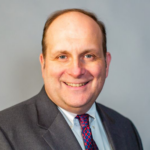EPISODE 195: “The Supreme Court Reins in the EPA: Why? What Happens Next” with John Vecchione and Casey Norman
The Supreme Court’s most momentous decision was not the 5-to-4 vote to overturn Roe v. Wade. That simply sent the issue back to the states to decide. Rather it was the blockbuster decision to rein in the Environmental Protection Agency from claiming powers that Congress did not grant. When Congress passed the Clean Air Act it authorized the EPA to impose the “best system of emission reduction” for carbon-emitting activities. It did not authorize the EPA to shut down electricity generated from coal. It did not authorize a “generation shift” to so-called renewables like wind and solar. The EPA had claimed these powers to order changes of vast economic and political significance and the Supreme Court essentially said “no you can’t do that, not unless there’s legislation that clearly and explicitly authorizes it.” As John Vecchione, my guest on this episode, puts it succinctly: “Why do you write down laws? If you write down the laws, don’t those words mean something or can they mean anything?” What the EPA has been saying is ‘We are going to set the CO2 levels such that the coal plants can no longer operate. We want to put the coal plants out of business completely.’ This was not its intended mandate. Join me as I talk with John Vecchione and his colleague Casey Norman, both with the New Civil Liberties Alliance, about the EPA decision and what it means. If you’re looking a lively, engaging and plain English conversation about the issues, this is the place to start.
SUBSCRIBE TODAY
FEATURED GUESTS
Related
Episodes

Episode 291: The Ministry of Green Truth: Mark Mills Exposes America’s $6 Trillion Energy Fantasy

Episode 290: Fifth Generation Warfare: Where Hypersonic Missiles Meet the Healthcare State
What if modern warfare has evolved beyond anything history’s great strategists could have imagined? While Metternich orchestrated the balance of power through diplomatic summits and Machiavelli counseled princes on maintaining state authority, today’s battles for sovereignty unfold in unlikely places: doctors’ offices, veterinary clinics, and local zoning boards across America.
Watch Now
Episode 289: The Bird and the (Babylon) Bee

Episode 288: The Secret Game: A Fast Break to Freedom



